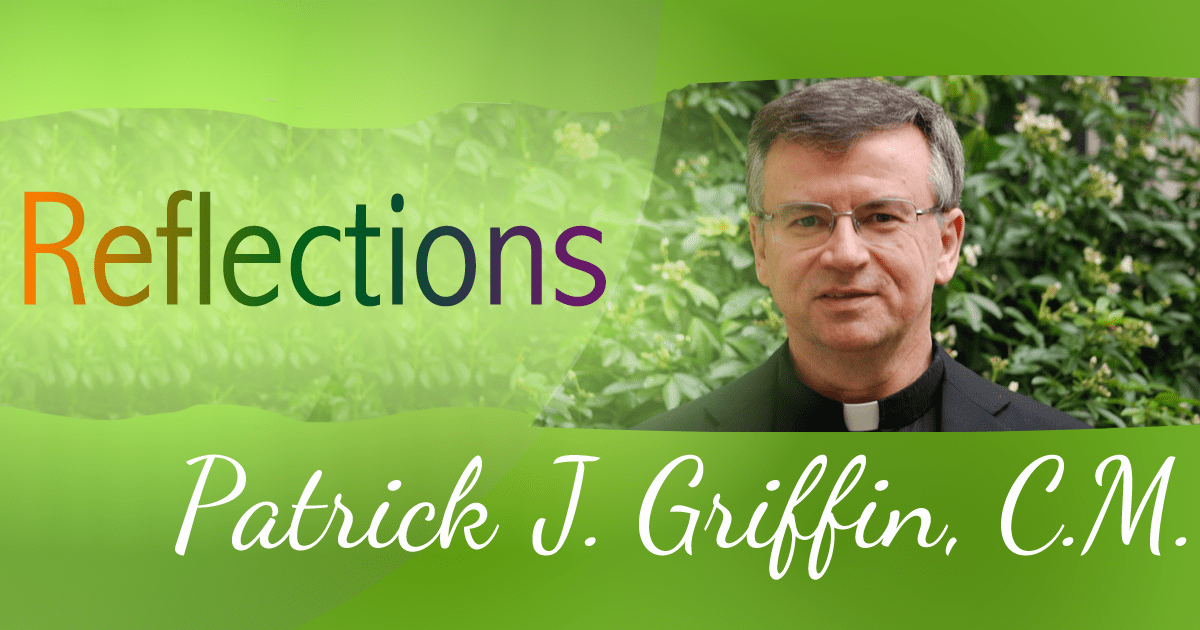A Vincentian View: Half the Story
Have you considered how many of the stories in our NT can be read as half-stories? We might just stop in the middle! For me, none is a better example of this notion than the most well-known of all the parables, the Prodigal Son (Luke 15). We can read how the younger son leaves his father to squander his inheritance, and then returns home destitute and hungry. The father welcomes him with open and forgiving arms. He prepares a feast for this beloved child. We could end this happy story with v. 27 “Then the celebration began” (Lk 15:27). But the story will not end there, we immediately begin the tale of the other son. He also has something to teach and the lessons belong together.
What about the story of the last judgment in Matthew 25? Couldn’t we end the story at verse 40 with the words of the Lord “Amen, I say to you, whatever you did for one of these least brothers or sisters of mine, you did for me.” These words capture the good behavior of those on the King’s right and teach a lesson. Why go into the failure half of the story as the same criteria measure unfavorably those on the left?
Or how about the parable of Lazarus and the rich man? Could we not stop at Lk 16:22 with the good news “When the poor man died, he was carried away by angels to the bosom of Abraham.” Why do we need to go into the torment of the rich man whose death and burial are recorded in the same verse?
Or how about Luke’s beatitudes followed by his woes? Or, well, add your own story.
Our Gospel does not stop in the middle. In all of the examples above, we do not grasp the complete lesson until we hear the whole story. The tale of the unforgiving servant that we read so recently writes that insistence in big bold letters.
In the parable, the first servant desperately needs the mercy of his Master. He owes a debt that he can never repay. His entreaty “Be patient with me, and I will pay you back in full” is an outright lie. If the master exercises his rights in justice to recover his debt, the man will lose everything—not only his own freedom, but his wife, his children, and all his property. In this impossible situation, he can only cast himself on the mercy of his Lord. And his Master does respond with mercy, cancelling the whole amount. What a great story! What a great lesson! A teaching about our need to seek God’s mercy and about the great mercy which God so willing gives. If only the story ended here . . . If only we could believe that his experience of mercy had changed this first debtor . . .
But, the story continues.
The forgiven servant has a fellow servant who owes him a manageable amount. This second debtor seeks mercy in exactly the same words that the first had used earlier—“Be patient with me, and I will pay you back in full.” (One cannot imagine that the story-teller’s repetition can be an accident.) The first servant now refuses mercy to his companion and has this brother cast into prison until he pays back his debt. Of course, from prison, no one is going to pay back a debt no matter how small the amount.
There is no subtlety in this story. The lesson is writ large. The unmerciful servant had no idea of the gift that he had received. He did not grasp the essence of mercy. He cannot fathom how much the Master had blessed him. If he did—if he understood mercy—he would be eager to share this blessing with others like his fellow servant.
We remind ourselves of this parable and its lessons each time we profess the Our Father, “forgive us our trespasses as we forgive those who trespass against us.” We need to take hold of the whole story.







Thank you Father. I really appreciate your article about half the story. I wonder about sequels to the Gospel stories, e.g. how did the older son respond to his father (what comes next, how did it turn out?) Did the man say, “thanks” to the Good Samaritan and did he pass kindness on to others? And most of all when Jesus said, “My brothers and sisters …” Did He go out and talk to His mother? Just wondering… Sister Catherine France DC
Very insightful and thought-provoking.
O the destruction the unforgiving forgiven servant unleashed! First, he turned his fellow servants against himself; they would now not forgive him. Second, he himself undid his having been forgiven. So, he forced the hand of the king, so that the king himself ended up unable to forgive seventy-seven times. Gone, then, for good was the world of mutual forgiveness that the king gave everyone a glimpse of. And all found themselves back in a world without forgiveness.
But could that be the world people would truly want to live in, notwithstanding the normalcy, the human dignity and justice that withholding forgiveness promises? Could a world without forgiveness really humanize?
Fr it hard to forgive those who really hurt. Fr i learned to hold on to anger hate and forgive is worse on you.I forgive but never forget the pain